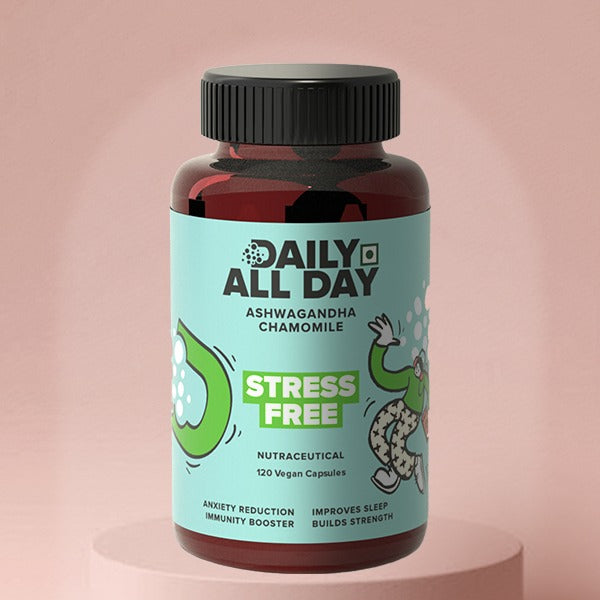Ayurveda is a unique, holistic medicinal system that originated in India during the pre-vedic period. The fundamental belief of Ayurveda is that the body, mind, and the soul must be in harmony for achieving health. We'll look at some of the most well-known active compounds in Ayurvedic health supplements in this blog, along with their benefits and role in the Ayurvedic system.
What are the Active Ingredients?
Active ingredients are the bioactive substances that provide medicinal properties to herbal and organic drugs. These ingredients are carefully chosen in Ayurveda, not just for their unique properties but also for the ways in which they interact with other ingredients and the body's systems.
The use of herbs represents the most effective approach in Ayurveda to heal illness and prevent disease. According to Ayurveda, everyone requires each of the six tastes; sweet, sour, salty, pungent, bitter, and astringent in moderation to balance the doshas.
Most of the classical preparations used in Ayurveda are polyherbals with a combination of three to thirty plants. The herbs are combined in desired strengths to form a balanced formulation and to enhance therapeutic efficiency. While one or two plants are active in the formulation, the other herbs play a supporting role. The supporting herbs have different actions such as acting as catalysts to help in proper absorption and transportation in the body tissues; to reduce toxicity or unwanted effects; to increase the efficacy.
Prominent Active Ingredients in Ayurvedic Supplements
- Turmeric (Curcuma Longa)- It is known for its antioxidant, anti-inflammatory and anti-viral properties and its active component is Curcumin. Turmeric is a medicinal plant extensively used in Ayurveda, Siddha and Unani systems of medicine. Curcumin is a powerful antioxidant that scavenges free radicals from the body, reduces oxidative damage and improves cognitive functions related to the aging process.
- Ashwagandha (Withania Somnifera)- It is known for its adaptogen, anti-stress, anti-epileptic properties and its active component is Withanolides. It is an important immune-boosting drug in Ayurveda used as a general tonic to rejuvenate the body, to relieve mental and physical fatigue and to increase longevity. It helps the body manage stress and anxiety. It can enhance energy levels, improve mood, and support cognitive function.
- Brahmi (Bacopa Monnieri)- It is known for its antidepressant, adaptogen, and astringent properties. Its active component is Bacosides. Brahmi is traditionally used for many ailments, but is best known as a potent nervine tonic and memory enhancer. It is implicated in the treatment of anxiety, epilepsy, dementia, etc.
- Tulasi (Ocimum Tenuiflorum)- It is known for its adaptogen, anti-toxic, anti-diabetic properties. Its active component is Eugenol, rosmarinic acid. Tulasi is known as a general vitalizer, an adaptogen that protects against and reduces stress, enhances stamina and endurance, boosts the immune system, reduces inflammation and increases the body’s efficient use of oxygen.
- Neem (Azadirachta Indica)- It is known for its antiviral, anti- bacterial, anti-fungal, etc. properties. Its active component is Nimbidin, nimbolide. The Neem tree is known by many names due to its diverse medicinal properties. The plant is used for skin diseases, detoxification of blood, improving liver function, fever, asthma, etc.
- Shatavari (Asparagus Racemosus)- It is known for its antioxidant, adaptogen, aphrodisiac properties. Its active component is Saponins, flavonoids. In Ayurveda medicine, Shatavari is a very potent herb to maintain the health of the female reproductive system. The herb is classified as a valuable Rasayana drug of Ayurveda, used both as a general tonic as well as a female reproductive tonic.
- Triphala- This traditional herbal blend supports digestive health, detoxification, and overall wellness. It is rich in antioxidants and vitamins, particularly vitamin C from Amla. Its active ingredients are Amla (Emblica officinalis), Bibhitaki (Terminalia bellirica), and Haritaki (Terminalia chebula).
The Significance of Active Components
The choice of active substances in Ayurveda is a very careful procedure. Every component is selected according to its own qualities, impact on the doshas, and compatibility with other components. This all-encompassing strategy guarantees that the supplements not only treat certain health issues but also advance general wellbeing.
Conclusion
Ayurveda has an endless list of herbs that are efficient for health benefits and rejuvenation. These herbs help you build the ability to defend your body from the attacks and manifestation of health diseases and viruses. Based on age-old knowledge, ayurvedic health supplements provide a wide range of advantages. By comprehending the active components and their functions in accordance with Ayurvedic principles, we can make better health-related judgments.
READ MORE: WHAT ARE AYURVEDIC HEALTH SUPPLEMENTS?



















